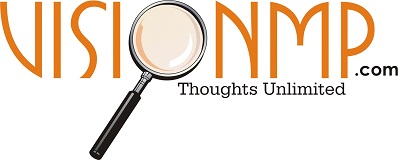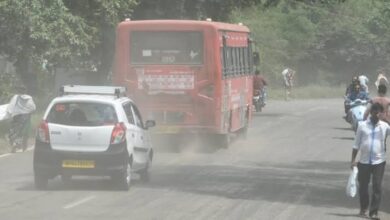
Delhi’s special cell police seized over Rs 5,000 crore worth of cocaine on Tuesday in what is being called the largest drug haul in Delhi and North India to date. The seized cocaine, sourced from South America, was part of a larger cartel operation aiming to supply drugs across India, particularly during the upcoming festive season and several high-profile concerts. Along with the cocaine, authorities discovered 40 kilograms of hydroponic cannabis during the raid, which had been in the works for over three months.
How much was seized and how much was the drug worth?
Reports on the drug seizures vary. The police seized at least 500 kilograms of cocaine, though some reports claim the figure may be as high as 540-560 kilograms.
Early reports valued the drugs at over Rs 2,000 crore. However, subsequent agency estimates revised this figure to over Rs 5,620 crore.
Meanwhile, The Times of India reported that the seized drugs, weighing over 540 kilograms, were valued at over Rs 6,500 crore in the international market.
The exact amount of cocaine and its international market value remains unclear.
The drug bust
Acting on intelligence from a central agency, a dedicated team from Delhi’s special cell tracked the activities of a major drug cartel operating between South America and India. For over three months, the team, led by Additional CP Pramod Singh Kushwaha, kept the cartel members under discreet surveillance.
On October 1, officers received a tip-off that a large drug consignment had arrived at a godown in Mahipalpur, Delhi. The godown, owned by Tushar Goyal, a key distributor for the cartel in India, was found to house over 540 kilograms of Grade-A Colombian cocaine.
Drugs hidden in polo shirt boxes
The drugs, concealed in cardboard boxes, were ready for distribution across northern India, hidden in packages labelled as polo T-shirts.
Goyal and three associates were arrested at the scene.
How Delhi’s special cell laid a trap for the drug cartel
Delhi’s special cell, having worked on the case for months, laid a trap outside Goyal’s Mahipalpur godown. Acting swiftly on the received intelligence, they moved in on Goyal and his associates just as they were handing over a consignment to Bharat Kumar Jain (48), a Mumbai-based distributor with underworld connections.
Jain had come to collect 15 kilograms of cocaine. He, along with Goyal (40), Goyal’s bodyguard Himanshu Kumar (27), and his driver Aurangzeb Siddiqui (23), were arrested on the spot.
40 kg of marijuana also found
Upon raiding the godown, police found a stash much larger than anticipated. Along with the cocaine, valued at Rs 12 crore per kilogram, officers seized 40 kilograms of hydroponic marijuana, which has an estimated market value of Rs 60 lakh per kilogram. The narcotics were hidden among cartons of books, part of Goyal’s family business.
How did the drug cartel operate?
The drug cartel, with ties to Latin American countries like Colombia, Peru, Bolivia, and Mexico, smuggled drugs into India for sale to a high-end clientele. The group primarily targeted college students, professionals, and wealthy businessmen in cities like Delhi and Mumbai. Goyal, who had previously worked in his family’s publication business before turning to real estate, eventually became a key point person for a Dubai-based drug cartel.
All monetary transactions for the drug deals were conducted using Tether, a cryptocurrency, making it harder for authorities to trace the funds. Police have now identified the kingpin of this drug syndicate, who is currently based in Dubai. Efforts are being made to apprehend him.
Arrests and investigation
Apart from Goyal, his three associates played distinct roles in the operation. Himanshu Kumar, Goyal’s bodyguard, served as the cartel’s enforcer, intimidating clients and ensuring smooth drug deliveries. Aurangzeb Siddiqui, who worked as Goyal’s chauffeur, played a crucial role in logistics, ensuring the safe transport of drugs. Bharat Kumar Jain, connected to the Mumbai underworld, facilitated the cartel’s operations in Mumbai, working closely with Goyal to distribute the drugs.
The bust marks a major blow to the cartel and highlights the growing sophistication of drug smuggling operations in India. Police believe that the seizure of over 540 kilograms of cocaine, valued between Rs 2,000 crore and Rs 6,500 crore in the international market, will significantly disrupt the international drug trade network operating in India.
Drug trafficking via Golden Crescent, Golden Triangle
Drug cartels in India often originate from international networks operating across regions known as the “Golden Crescent” (Afghanistan, Pakistan, and Iran) and the “Golden Triangle” (Myanmar, Laos, and Thailand).
These areas are notorious for producing opium and heroin, which are then trafficked into India. From the Golden Crescent, drugs like heroin often enter India through Punjab and Gujarat, while the Golden Triangle supplies drugs to the northeastern states via Myanmar.
India’s long coastline also facilitates maritime drug smuggling, particularly through states like Gujarat, Tamil Nadu, and Kerala.
Previous drug busts in India
On the same day as the Mahipalpur bust, Delhi Customs officers at Indira Gandhi International Airport arrested a Liberian national carrying 1,660 grams of cocaine, valued at Rs 24.9 crore. The passenger had arrived from Dubai and was arrested under the Narcotic Drugs and Psychotropic Substances (NDPS) Act.
Earlier this year, Indian authorities confiscated nearly 3,000 kilograms of heroin at Gujarat’s Mundra port, marking one of the largest drug hauls in the country.
In 2023, a joint operation between the Narcotics Control Bureau (NCB) and the Indian Navy led to the seizure of 2,500 kilograms of high-purity methamphetamine worth Rs 12,000 crore. Gujarat has become a hotbed for such busts, with frequent interceptions of large drug consignments.
Similarly,in 2022, Mumbai police intercepted a shipment containing over Rs 1,000 crore worth of methamphetamine. Such large-scale operations have become more common in recent years as international drug cartels increasingly target the Indian market.
While the latest drug bust is a significant victory for Delhi Police, it highlights the ongoing challenges law enforcement faces in tackling drug trafficking in India. With international connections, growing demand, and a wealthy clientele, drug cartels continue to pose a substantial threat in the country.





